| Article ID | Journal | Published Year | Pages | File Type |
|---|---|---|---|---|
| 2010933 | Pharmacological Reports | 2012 | 6 Pages |
BackgroundThe purpose of this study was to evaluate the effect of hydrochlorothiazide (HCTZ), a thiazide-type diuretic and an antihypertensive drug, on the anticonvulsant activity of numerous antiepileptic drugs (AEDs: carbamazepine – CBZ, phenytoin – PHT, valproate – VPA, phenobarbital – PB, oxcarbazepine – OXC, lamotrigine – LTG and topiramate – TPM).MethodsThe effects of HCTZ and AEDs on convulsions were examined in the maximal electroshock seizure (MES) test in mice. Additionally, adverse effects of combined treatment with HCTZ and the AEDs in the passive avoidance task and chimney test were assessed. All drugs were injected intraperitoneally (ip) at single doses.ResultsThe data obtained indicate that HCTZ (100 mg ip) enhanced the anticonvulsant action of CBZ, decreasing its ED50 value from 11.9 to 7.7 mg/kg (p < 0.05), and had no impact on the antielectroshock activity of the other AEDs. The observed interaction between HCTZ and CBZ was not pharmacokinetic in nature as HCTZ did not alter free plasma (non-protein-bound) and total brain concentrations of CBZ. The combined treatment with HCTZ and the AEDs was free from side-effects on motor performance and long-term memory in mice.ConclusionsTo the degree, the experimental data can be transferred to clinical conditions, the use of a single dose of HCTZ in patients receiving VPA, PHT, PB, OXC, LTG or TPM, seems neutral regarding their anticonvulsant potency. Acute HCTZ may positively influence the anticonvulsant action of CBZ in epileptic patients.
